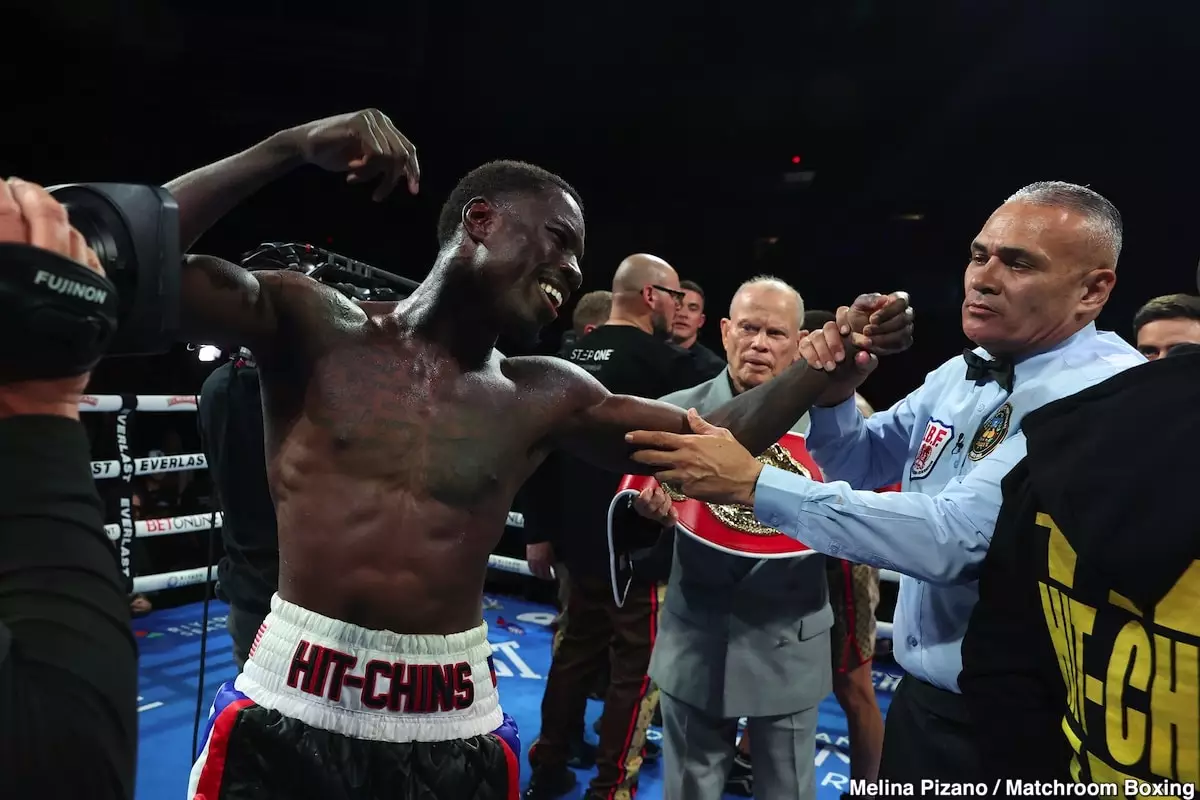Richardson Hitchins, the newly crowned IBF light welterweight champion, is making waves in the boxing community with his aspirations of unification bouts against notable champions like Teofimo Lopez and Devin Haney. However, while his ambitions may resonate with fans, the realities of professional boxing—especially post-pandemic—pose significant challenges to his lofty goals. As he prepares for a potential return to the ring in May, the complexities of matchmaking in boxing reveal a landscape filled with both opportunity and roadblocks.
Hitchins, with an impressive record of 19-0 and 7 KOs, recently earned his title by defeating Liam Paro in a closely contested 12-round split decision. While on paper, this victory should garner praise, the nature of his performances has drawn criticism. Fans were less than enthused, as Hitchins adopted a defensive approach that left spectators longing for more action. This criticism is concerning, particularly for a fighter aiming to solidify his status and increase his marketability.
The bout against Paro, where Hitchins’ dominant performance should have resulted in a unanimous decision, instead left some questioning his ability to engage with thrilling fighters at the elite level. This dissatisfaction from fans could hinder his attempts to attract big-name opponents who seek to entertain as much as they do to win.
Hitchins’ declaration that he would be interested in fighting Lopez or Haney demonstrates both ambition and a degree of naïveté about the business of boxing. Although Lopez and Haney are recognized names with substantial fanfare, the likelihood of those bouts materializing soon is minimal. Lopez is on the lookout for high-stakes fights against bigger names like Jaron ‘Boots’ Ennis and Terence Crawford, while Haney is still grappling with the aftermath of his recent loss to Ryan Garcia. The reality is that both fighters may be unwilling to face Hitchins, given how they are currently positioned in their careers.
Moreover, Hitchins’ sentiments of feeling slighted come off as a double-edged sword. While it showcases his determination to claim his place in boxing, it also reveals a sense of entitlement that might not resonate well with others in the boxing community. The sport is notoriously fickle, and fighters must prove themselves consistently to be considered for high-profile bouts.
The sentiment expressed by Hitchins about being the champion conveys an important but often unbalanced perspective. He claims that if Haney wishes to reclaim title glory, he must come to him. However, this perspective can misalign with the public’s interest and the financial realities of making those matchups happen. The boxing world thrives on compelling narratives, and thus far, Hitchins hasn’t quite crafted that narrative everyone feels inclined to buy into.
To elevate his status and attract the type of fighters that can bring excitement back into the ring, Hitchins would benefit from securing bouts against fighters like Subriel Matias or George Kambosos Jr. Eddie Hearn, his promoter, seems to have the ability to set these encounters up. By facing off against a recognized name, Hitchins can strategically increase his visibility and potentially lay claim to bigger fights in the near future.
At just 27 years old, Richardson Hitchins has time on his side. His assertion that as long as he is compensated well he is open to fighting anyone speaks to a pragmatic side of him. Yet, the expectation that he will effortlessly land a unification match soon might lead to discontent if not met. The key to his success lies in consistency, impact, and a commitment to thrilling performances that not only win titles but also earn the love and energy of boxing fans.
Richardson Hitchins stands at a crossroads. His ambitions are admirable, yet they clash with the harsh truths that define professional boxing today. By focusing on building a personal brand that captivates audiences, reliable performance in the ring, and wisely navigating potential matchups, he can truly position himself as a contender for unification. Otherwise, the boxing realm may continue to see him as an emerging talent with unfulfilled promise rather than a champion in his own right.

